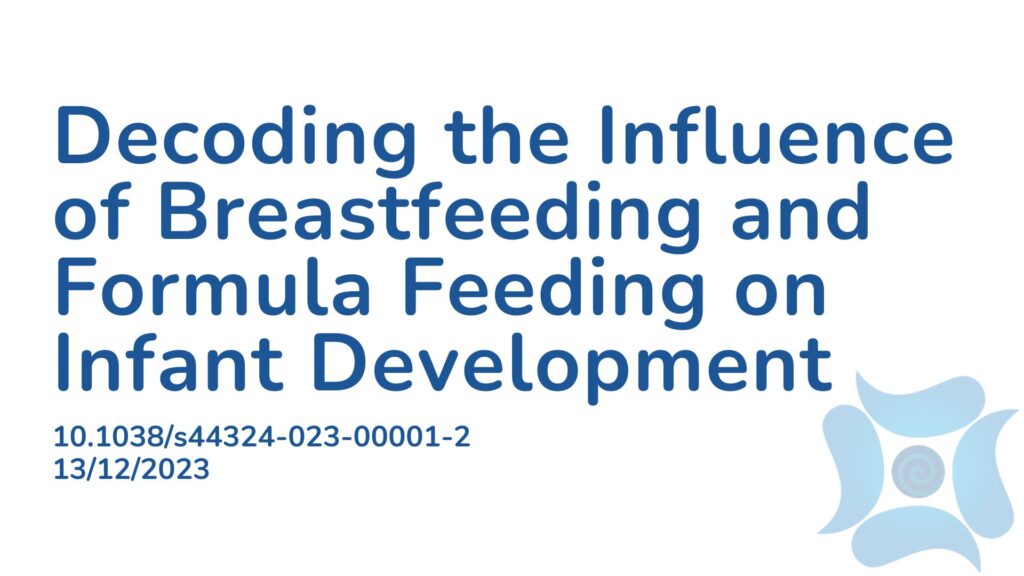Summary:
Breast milk is widely regarded as a superior source of nutrition, offering various benefits such as protection against allergies, enhanced immune system development and positive brain development. Whilst The World Health Organization recommends exclusive breastfeeding for the first six months of life, adherence to this is limited in the United States, where only 62.6% of infants are exclusively breastfed at birth, dropping to 25% by six months. Although infant formula can provide essential nutrients for growth, it has been associated with hospitalizations, infections, childhood obesity, and diminished levels of docosahexaenoic acid (DHA), which is critical for brain development. The potential health benefits of breast milk are thought to extend to the gut microbiome in infants. As solid foods are introduced around six months, they further impact the infant gut microbiome. The fecal metabolome also serves as a functional indicator of gut bacteria and can influence infant health by affecting the circulation of beneficial metabolites. Studies suggest links between the infant gut microbiome, fecal metabolome, prolonged breastfeeding, and improved neuro-developmental outcomes. Given that the brain undergoes significant development in the first two years of life, understanding the association between dietary patterns, infant fecal metabolome, and brain development is crucial. This study explored feeding types (breast milk or formula) in 112 infants, assessing fecal metabolome changes and neurodevelopmental outcomes at two years. Breastfeeding correlated with positive neuro-developmental outcomes, while formula feeding showed a negative association. These findings suggest that feeding patterns impact the infant fecal metabolome, potentially influencing cognitive development later in life.
Abstract:
Infant fecal metabolomics can provide valuable insights into the associations of nutrition, dietary patterns, and health outcomes in early life. Breastmilk is typically classified as the best source of nutrition for nearly all infants. However, exclusive breastfeeding may not always be possible for all infants. This study aimed to characterize associations between levels of mixed breastfeeding and formula feeding, along with solid food consumption and the infant fecal metabolome at 1- and 6-months of age. As a secondary aim, we examined how feeding-associated metabolites may be associated with early life neurodevelopmental outcomes. Fecal samples were collected at 1- and 6-months, and metabolic features were assessed via untargeted liquid chromatography/high-resolution mass spectrometry. Feeding groups were defined at 1-month as 1) exclusively breastfed, 2) breastfed >50% of feedings, or 3) formula fed ≥50% of feedings. Six-month groups were defined as majority breastmilk (>50%) or majority formula fed (≥50%) complemented by solid foods. Neurodevelopmental outcomes were assessed using the Bayley Scales of Infant Development at 2 years. Changes in the infant fecal metabolome were associated with feeding patterns at 1- and 6-months. Feeding patterns were associated with the intensities of a total of 57 fecal metabolites at 1-month and 25 metabolites at 6-months, which were either associated with increased breastmilk or increased formula feeding. Most breastmilk-associated metabolites, which are involved in lipid metabolism and cellular processes like cell signaling, were associated with higher neurodevelopmental scores, while formula-associated metabolites were associated with lower neurodevelopmental scores. These findings offer preliminary evidence that feeding patterns are associated with altered infant fecal metabolomes, which may be associated with cognitive development later in life.
Article Publication Date: 13/12/2023
DOI: 10.1038/s44324-023-00001-2



